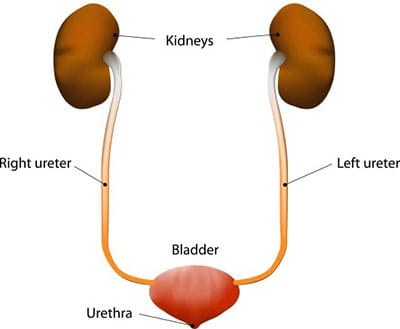MMP14: A Key Biomarker for Predicting Bladder Cancer Progression and Immunotherapy Response
Bladder cancer is one of the most common and aggressive cancers of the urinary system. While early-stage cases can often be treated with surgery, advanced bladder cancer presents significant challenges, particularly when the disease spreads and becomes resistant to treatment. Immunotherapy has emerged as a promising approach for treating advanced bladder cancer, but not all patients respond effectively. Identifying reliable biomarkers that can predict treatment response and disease progression is essential for improving outcomes.
The Role of the Basement Membrane in Cancer
The basement membrane is a key structural component of tissues, acting as a barrier that separates epithelial cells from the underlying connective tissue. In cancer, tumor cells often break down the basement membrane to invade surrounding tissues and spread to other parts of the body. This process is largely driven by enzymes known as matrix metalloproteinases (MMPs), which degrade the basement membrane’s structure. Among these, MMP14 has been found to play a critical role in aggressive forms of bladder cancer.
MMP14 and Bladder Cancer Progression
Researchers analyzed data from large cancer research databases, including The Cancer Genome Atlas (TCGA), and examined tissue samples from bladder cancer patients. The study found that MMP14 expression was significantly higher in muscle-invasive bladder cancer compared to non-muscle-invasive bladder cancer. Patients with elevated MMP14 levels had worse survival rates and a higher likelihood of cancer progression. MMP14 was particularly active in pathways related to tumor invasion and metastasis, including epithelial-mesenchymal transition, a process that makes cancer cells more mobile and resistant to treatment.
The Impact of MMP14 on Immunotherapy Response
One of the most significant findings of the study was the link between MMP14 and the effectiveness of immune checkpoint inhibitors, a form of immunotherapy that helps the body’s immune system recognize and attack cancer cells. Patients with high MMP14 expression responded poorly to immunotherapy, suggesting that this gene plays a role in making bladder cancer more resistant to immune-based treatments.
Further analysis showed that MMP14 expression was associated with an increased presence of CD8+ T cells and other immune cells. While this might suggest a strong immune response, the results indicated that MMP14 may alter the tumor’s immune environment in ways that reduce the effectiveness of immunotherapy.
Validating the Findings in Real Patients
To confirm these results, researchers examined tissue samples from bladder cancer patients who had undergone surgery or immunotherapy. The findings supported the previous analysis, showing that patients with higher MMP14 expression were less likely to respond well to immune checkpoint inhibitors. This suggests that MMP14 could be a useful biomarker for predicting which patients may not benefit from standard immunotherapy.
The identification of MMP14 as a biomarker in bladder cancer has significant clinical implications. Testing for MMP14 expression could help doctors determine which patients are at higher risk of aggressive disease and may require more intensive monitoring or treatment. It could also guide treatment decisions by identifying which patients are less likely to benefit from standard immunotherapy, allowing doctors to explore alternative therapies or combination treatments.
The role of MMP14 in cancer invasion and immune response suggests that developing drugs to block this enzyme could help slow cancer progression and improve treatment outcomes. Researchers are now exploring ways to target MMP14 directly, with the hope of making bladder cancer more responsive to treatment and less likely to spread.
To learn more, read this!: Basement membrane-related MMP14 predicts poor prognosis and response to immunotherapy in bladder cancer | BMC Cancer | Full Text


